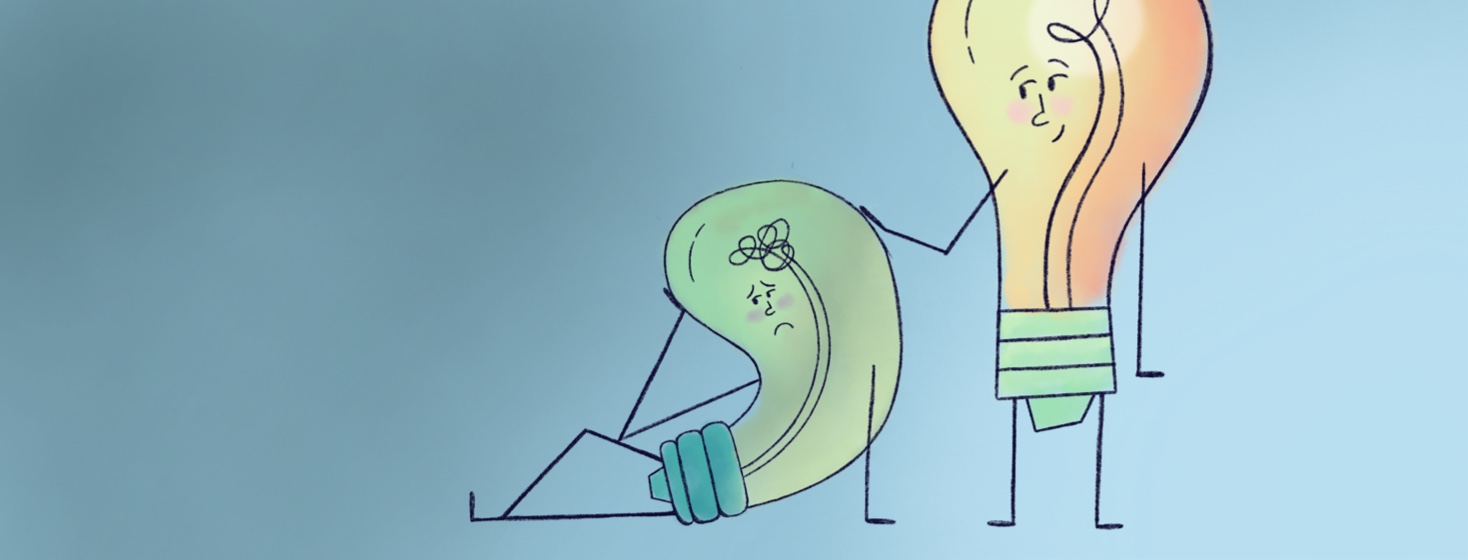Overcoming Epilepsy by Learning How to Fail
"I have not failed. I've just found 10,000 ways that won't work," Thomas Edison once said about his quest to invent the light bulb. Good words.
The more experiences I have – as someone with epilepsy and as a parent – the more I love how my parents raised me. Unfortunately, they're not around for me to tell them. Both were elementary school teachers, caring for an epileptic son in a rural area without access to experts, during the 1960s and 70s. That's a time period I refer to as epilepsy's "Iron Age."
Growing up with epilepsy
I don't believe that "epileptologists" existed anywhere other than the tightest research institutions. Phenobarbital was the sole medication offered to us. Surgery was inconceivable. And the children were assigned to special education programs regardless of their intellect.
Support groups were nonexistent. First, because parents and patients thought they had to keep quiet or risk being shunned in the community, and second, because the benefits were unimaginable.
Dad shared with me that I wasn't different from his students in how he considered children "boulders," attributing that to Michelangelo's sculpting. That master confessed that he never started chiseling on a boulder with an image in his mind of a sculpture. Rather, Michelangelo started chiseling to free the masterpiece inside that rock that was yearning to blossom.
My talents and my challenges
My parents knew that I wouldn't be as popular with my peers because of my seizures and the clumsy medical side effects. When team captains selected players for games at recess, captains avoided picking me.
Mom and Dad recognized my talents for art and speaking, and masterfully guided me toward art contests and the community theater. They got me into contests. Dad became a Boy Scout troop leader when we moved to a community that didn't have a troop. He coached baseball little league to make sure that I stayed in games longer than other father coaches would tolerate my strikeouts and errors – or maybe get hits. He was proud I tried.
My parents took my sister and me to historic sites, public events, and industrial open houses, and he bought a set of encyclopedias to make us research our destinations in advance.
My dreams of military service despite my epilepsy
Aviation, outer space, and the Navy were my greatest interests from the time I was in grade school! My parents knew that because of my epilepsy, getting into them would be like climbing Mount Everest, which was why they fostered alternative interests should I fail. All the while, not extinguishing my burning desire to try.
When I was a grown man, long after college and into my career in television, Dad confessed to me what had been his hardest task as a father: setting me up to crash and burn.
My epilepsy "handicap"
High school graduation was approaching. My congressman was behind me in taking a stab to enter the Naval Academy. But my epilepsy meant I was going to have a special meeting with Navy authorities. The day before the meeting, the Navy commander in charge telephoned Dad and told him that he needn't bring me because my "handicap wouldn't be tolerated."
"You tell him that, not me," Dad said. He added, "If I don't take him, he will hate me for the rest of his life for not letting him try."
But I cannot fail! Right?
The next morning, he and Mom sat quietly in the back of the commander's office and watched me spread out reference letters, awards, and even trophies that I intended to use in what I knew would be a hard sell. They knew that I was determined to be the only person of my generation in either of their families who cared about seeing that a family tradition of military service dating from the American Revolution was carried on.
"We can't use a person with your handicap in the military," the commander uttered before I could barely say a word. Still, I cited to a stone wall for several minutes the famous military commanders who had epilepsy, like Alexander the Great, Julius Caesar, Hannibal, and Napoleon. The officer struck me as contemptible when he sighed, "They weren't flying F-14’s."
"Neither are you! Telling me why I can't have your job!" I shouted. After surrendering, I didn't speak to anyone for over a day.
Learning how to fail is part of epilepsy... and life
In the years that followed that disaster, my epilepsy remained. Mom and Dad continued letting me be the 1 to choose what things to try, even if the ideas seemed outlandish, and would give me their support.
That's how just 3 years afterward, I was elected the youngest delegate in America to the Republican National Convention and got an idea about energy approved in the Party Platform. I had some nice, big successes that were unimaginable to most, and "crashed and burned" many more times. But because of their attitude, I wasn't afraid to try.
Failure is a continuous part of life whether people do or don't have epilepsy or other disabilities. My advice? Don't become over-protective of someone who becomes epileptic! God bless Tom and Rosie Ulmer for teaching me how to fail.
"Success is not final, failure is not fatal: it is the courage to continue that counts." –Winston Churchill.

Join the conversation